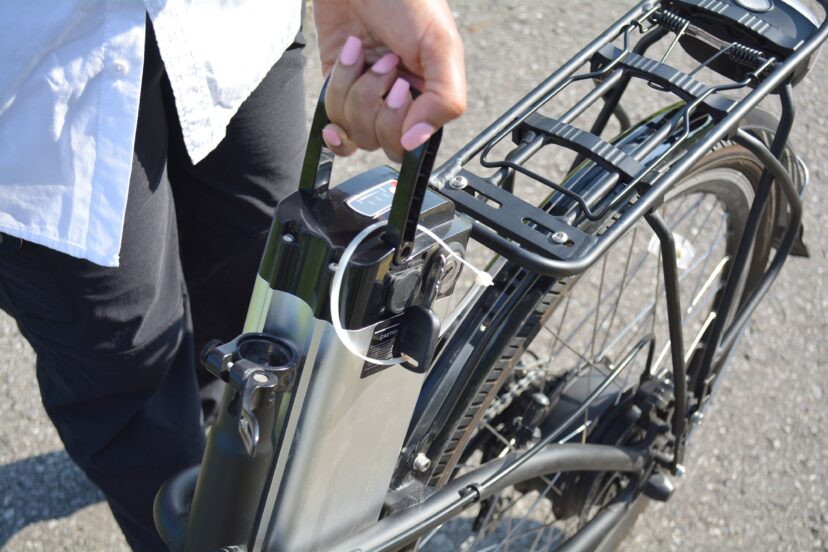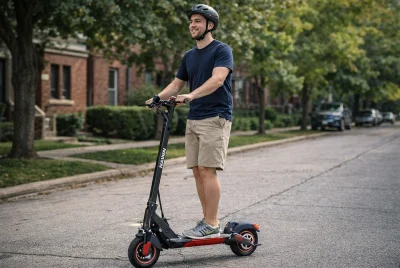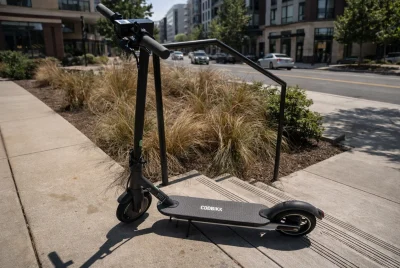The Ultimate Guide to Choosing an Electric Bike Charger
*We may earn a commission for purchases made using our links. Please see our disclosure to learn more.
As an ardent electric bike enthusiast, I’ve learned that the significance of selecting the right electric bike charger cannot be overstated. Just like choosing the perfect bike, finding the appropriate charger is crucial to ensure seamless rides and optimal battery performance. In this guide, I’ll delve into the essential factors you should consider when picking the ultimate electric bike charger.
Understanding Electric Bike Chargers
Electric bike chargers can be broadly categorized into two types: standard chargers and fast chargers. Standard chargers provide a steady and gradual flow of energy to your bike’s battery, resulting in a longer charging time. On the other hand, fast chargers deliver a higher voltage, reducing charging times significantly.
While fast charging might seem appealing, it’s important to note that it can generate more heat, potentially affecting battery longevity. Therefore, it’s essential to align your charger choice with your specific needs and battery characteristics.
Factors to Consider When Choosing an Electric Bike Charger
Selecting the right electric bike charger is akin to choosing the perfect companion for your bike’s battery. It’s not just about plugging in; it’s about ensuring optimal charging performance and the longevity of your battery.
Here’s a comprehensive look at the factors you should consider when making this important decision.
Battery Compatibility
The cornerstone of a successful charger selection lies in battery compatibility. Your charger’s voltage and capacity specifications must align seamlessly with those of your bike’s battery. Mismatched charging parameters can lead to inefficient charging, longer charge times, and even potential damage to the battery’s cells.
Charging Speed Options
The speed at which your charger replenishes your battery’s energy is another critical aspect to evaluate. While fast charging options are enticing due to their quick turnaround times, it’s essential to weigh the benefits against potential downsides. Rapid charging generates more heat, which can impact your battery’s overall lifespan.
Battery Longevity
When it comes to electric bike batteries, longevity is the name of the game. Prolonged battery life translates to more rides and better performance over the years. The charger you select plays a crucial role in this equation. A charger that’s specifically designed to optimize battery health—by preventing overcharging, balancing cells, and controlling temperature—can significantly extend your battery’s overall lifespan.
Charger Amperage
Charger amperage, also known as charging current, directly affects how quickly your battery charges. Higher amperage generally results in faster charging times. However, it’s crucial to verify that your battery can handle the selected amperage without compromising its health.
User-Friendly Features
The user experience can greatly enhance or hinder your charging routine. Look for user-friendly features like clear LED indicators that provide charging status updates, audible alerts when charging is complete, and ergonomic designs that make plugging and unplugging easier. An intuitive and user-friendly charger can streamline your charging process and reduce any guesswork.
Recommendations for Electric Bike Chargers
Based on my experience as an electric bike enthusiast, I’ve curated a list of recommended chargers that cater to different needs and preferences:
48-54.6V 2A Electric Bike Charger
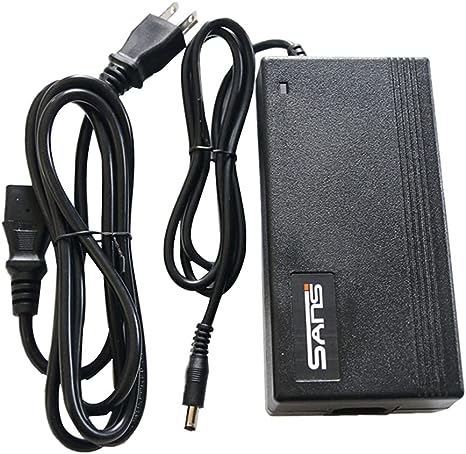
Power up your electric adventures with the 48-54.6V 2A Electric Bike Charger. Designed for 48V lithium batteries, this charger delivers optimal performance, ensuring a rapid and reliable charge every time.
With an input voltage of AC120V and a convenient DC2.1MM jack connector, recharging your electric bike becomes effortless. Whether you’re a daily commuter or an off-road enthusiast, this charger provides the energy you need for your journey.
Say goodbye to downtime and hello to uninterrupted rides, as the 48-54.6V 2A Electric Bike Charger keeps you moving with efficiency and convenience.
VHBW 42V 2A Replacement for Jetson Electric Bike Charger
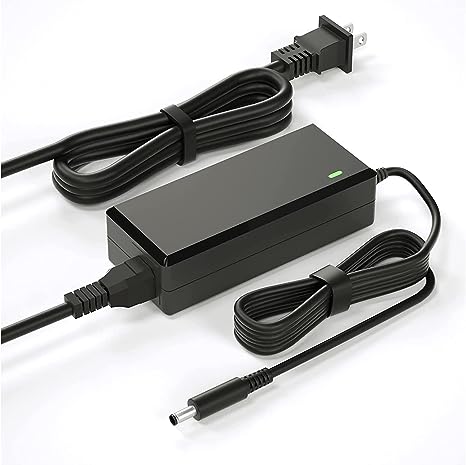
Introducing VHBW 42V 2A Replacement Charger, designed for Jetson Electric Bikes and more. This electric scooter charger boasts wide compatibility, catering to Hiboy S2 Pro, Jetson Bolt Pro electric bikes, and Gotrax Sisigad Scooters.
With a seamless fit, it ensures a quick and reliable charge, keeping you on the move. Say goodbye to waiting and hello to efficient charging.
Whether you’re exploring the city or cruising through the neighborhood, trust the VHBW Replacement Charger to keep your electric ride ready for every adventure, ensuring you never miss a beat on the road.
SafPow 42V 2A Charger (3 Plugs) Universal for 36V Lithium Battery
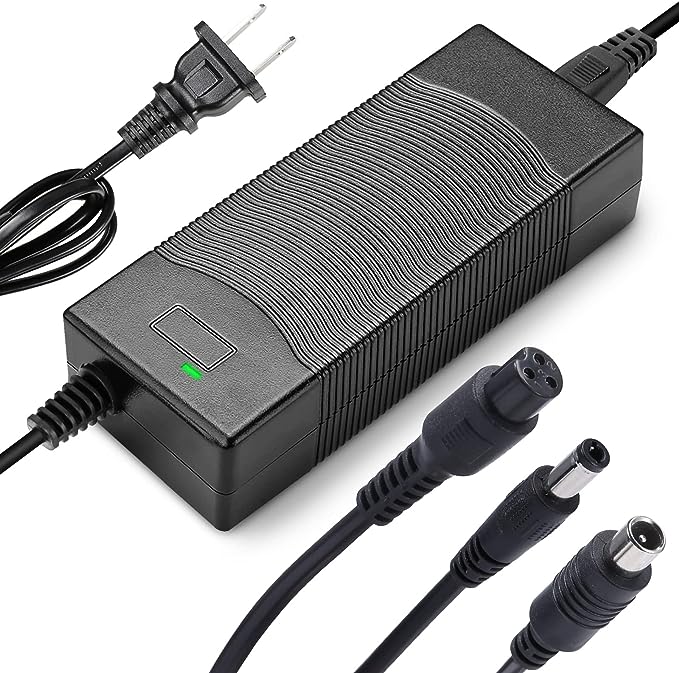
Experience convenient and efficient charging with the SafPow 42V 2A Charger. This universal charger, designed for 36V lithium batteries, offers a fast and smart replacement solution for all brands of 36V electric bikes.
With three included plugs, it ensures compatibility with a variety of models. Say goodbye to long charging times as this charger delivers swift power, optimizing your downtime.
Whether you’re zipping through the city on your e-bike or cruising along scenic paths, trust SafPow to keep you charged up and ready to roll. Upgrade to hassle-free charging and enhance your riding adventures today.
EVAPLUS Power Adapter
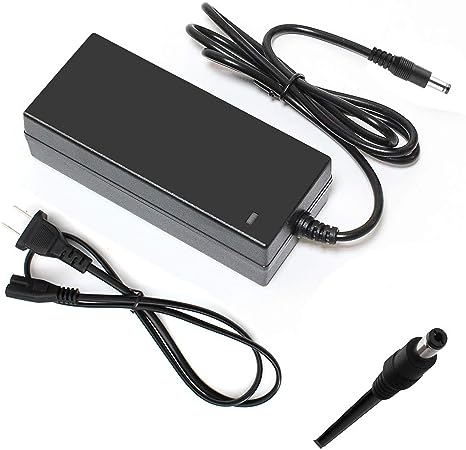
Enhance your charging experience with the EVAPLUS Power Adapter Female DC Port Inline Connector. Specifically designed for a range of GOTRAX electric bikes including GXL V2, G2, G3, G4, Apex, Glider, XR Elite, and XR Ultra, this 42V 2A charger is the perfect match for your 36V lithium battery.
Its 5.5mm by 2.1mm diameter makes it compatible and reliable. Effortlessly power up your electric bike and keep your adventures going with this precision-engineered adapter.
Say goodbye to downtime and hello to convenience, as EVAPLUS ensures you stay connected to the ride that moves you.
Charging Connectors and Ports
Imagine having the perfect puzzle piece that doesn’t fit into the board; that’s what happens when your charger’s connector doesn’t match your bike’s charging port. Charging connectors come in various types, including Anderson, XLR, and USB-C. Ensuring that your charger’s connector aligns seamlessly with your bike’s charging port is pivotal for a hassle-free charging experience. Investing in adapters might seem like a workaround, but it’s preferable to have a direct, secure connection.
Portability and Size
For those of us who love embarking on electric bike adventures, the portability of the charger becomes crucial. Compact chargers are a godsend when you’re on the move, allowing you to recharge your bike wherever you go. Their small size and lightweight design make them easy to carry in your backpack or saddlebag. However, remember to strike a balance between portability and charger power; an excessively small charger might sacrifice charging speed.
Smart Charging Features
Welcome to the era of smart charging. Modern chargers come equipped with intelligent features that go beyond merely delivering energy. These chargers manage voltage levels, monitor battery temperature, and implement safeguards against overcharging. The benefits are twofold: your battery’s life expectancy improves, and you’re less likely to encounter safety issues. Investing in a charger with smart features is an investment in both your battery’s health and your overall biking safety.
Brand Compatibility and Warranty
In the world of electric bike chargers, reputation matters. Opting for chargers from established and reputable brands provides you with a higher degree of confidence in the product’s quality and safety. Recognized brands typically subject their chargers to rigorous testing to ensure they meet safety standards. Additionally, consider the warranty coverage offered. A robust warranty not only indicates the manufacturer’s confidence in their product but also serves as a safety net for any unexpected issues.
Safety Considerations
Safety should never be compromised, especially when it comes to electrical devices. A high-quality electric bike charger incorporates a range of safety features. Overcharge protection prevents your battery from being overcharged, which can damage its cells and capacity over time. Short-circuit protection safeguards against electrical shorts that could potentially damage the battery or other components. Furthermore, surge protection is crucial, especially in areas with unstable power conditions, as it prevents voltage spikes from harming your battery or charger.
Energy Efficiency
Besides charging speed and safety features, energy efficiency is a critical consideration. An energy-efficient charger maximizes the amount of energy converted into battery power while minimizing energy losses as heat. This efficiency not only translates into shorter charging times but also contributes to lower electricity bills and a reduced environmental footprint.
Cost vs. Quality
While affordability is undoubtedly a concern, compromising quality for cost can have serious repercussions. Extremely cheap chargers might lack essential safety features and undergo inadequate testing, potentially putting your bike and battery at risk. Striking the right balance between cost and quality is vital; opt for a charger that offers the necessary features without cutting corners on safety.
Compatibility with Charging Stations
If you frequently embark on longer journeys and rely on public charging stations, it’s essential to consider compatibility. Public charging stations often feature different types of connectors, so ensure your charger is compatible with the connectors commonly found at these stations. This foresight can prevent frustration and ensure you can charge your bike wherever your adventures take you.
Long-Term Battery Health
Your charger plays a pivotal role in maintaining the overall health and longevity of your bike’s battery. Choosing a high-quality charger that aligns with your battery’s specifications and incorporates safety features can significantly impact your battery’s lifespan. A well-maintained battery retains its capacity over time, allowing you to enjoy longer rides and fewer worries about battery replacements.
Personal Experience and Recommendations
As a devoted electric bike enthusiast, my journey has provided me with valuable insights into the world of electric bike chargers. Based on my personal experiences, I’ve curated a selection of recommendations tailored to various scenarios. Whether you’re a city dweller who commutes daily or an adventurer who explores rugged terrains, my recommendations aim to guide you toward the charger that suits your needs best.
Conclusion
The process of selecting the ideal electric bike charger transcends mere convenience; it’s about optimizing your biking experience and safeguarding your investment. By carefully considering factors such as battery compatibility, charging speed, safety features, and portability, you’re poised to make an informed decision. A well-chosen charger not only powers your rides but also contributes to the longevity and efficiency of your bike’s battery. As you embark on this journey, remember that your charger is more than just an accessory—it’s your key to electrifying adventures.
FAQs
Q1: Can I use any charger for my electric bike?
While some chargers may work, it’s recommended to use a charger specifically designed for your bike’s battery to ensure compatibility and optimal charging.
Q2: Are fast chargers safe for my battery?
Fast chargers can be safe if used judiciously. However, frequent use of fast charging may impact the overall lifespan of your battery due to the increased heat generated during charging.
Q3: Is it necessary to purchase a charger from the same brand as my bike?
While not mandatory, choosing a charger from a reputable brand with a track record of quality can enhance your confidence in the product’s safety and performance.
Q4: Can I leave my electric bike connected to the charger overnight?
It’s generally safe to leave your bike connected overnight, especially if your charger features safety features like overcharge protection. However, prolonged overcharging can potentially impact battery health over time.
Q5: How do I identify if my charger is faulty?
If you notice irregular charging behavior, excessive heat, or any unusual noises during charging, it’s advisable to consult a professional and consider replacing the charger to prevent potential damage to your bike or battery.

